Dust and bones as Turkey's Lake Van shrinks
-
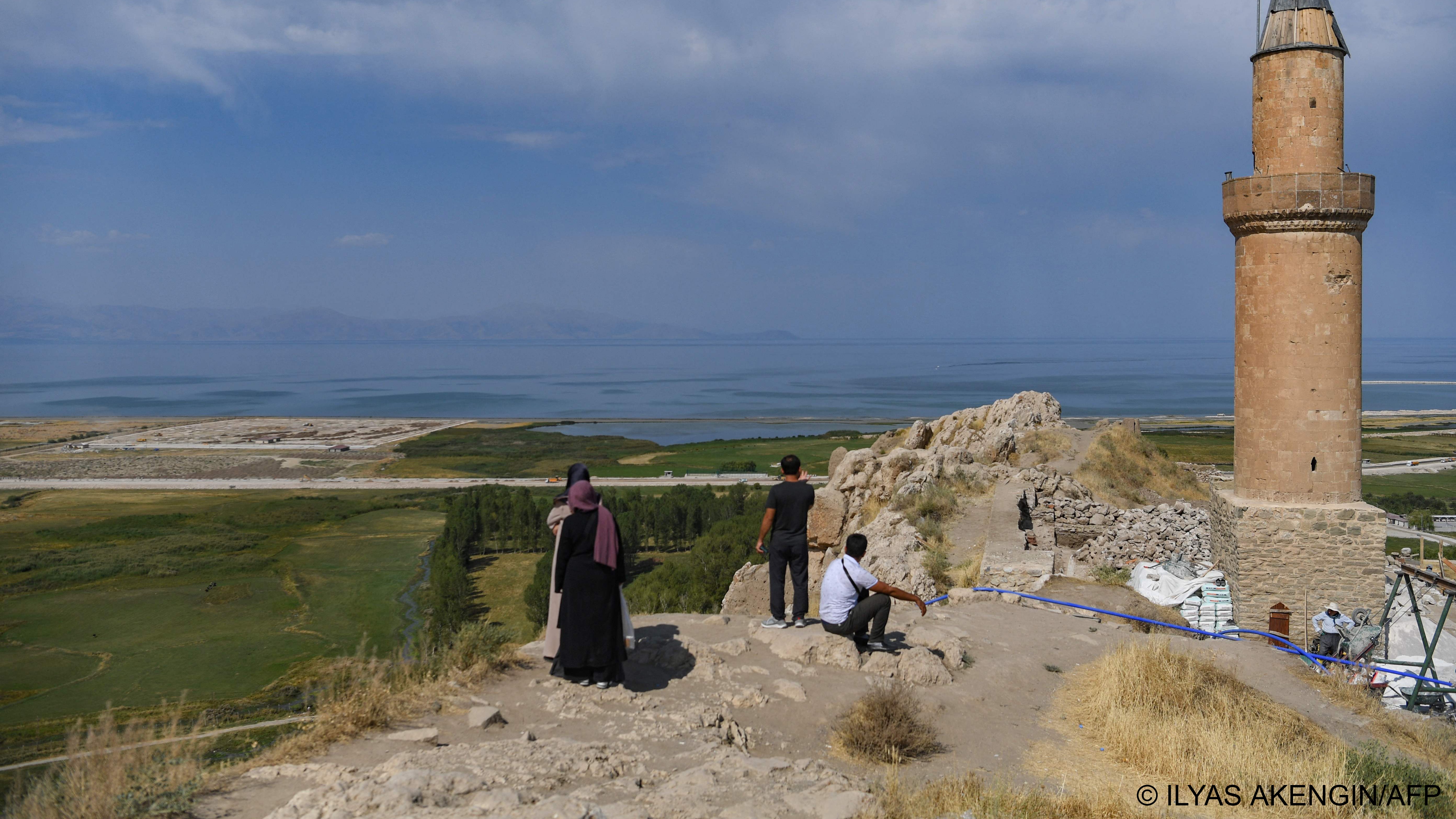
-
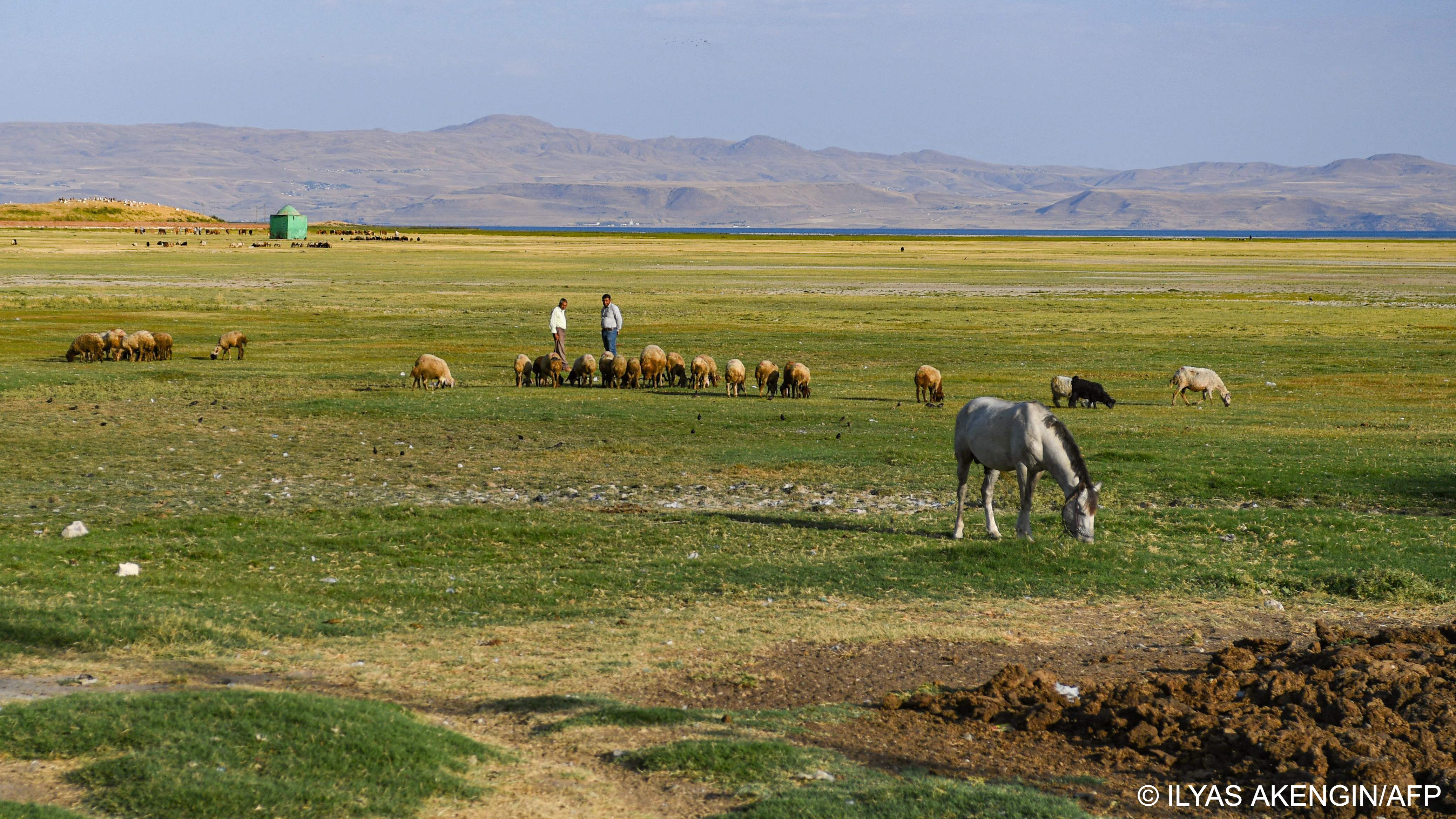
"There is no water": an occasional shrub marks the spots from where Lake Van has retreated over years of global heating and drought. Koc echoes sentiments expressed by a growing number of Turks who have watched their mountains lose ice caps and their water reservoirs dry up -
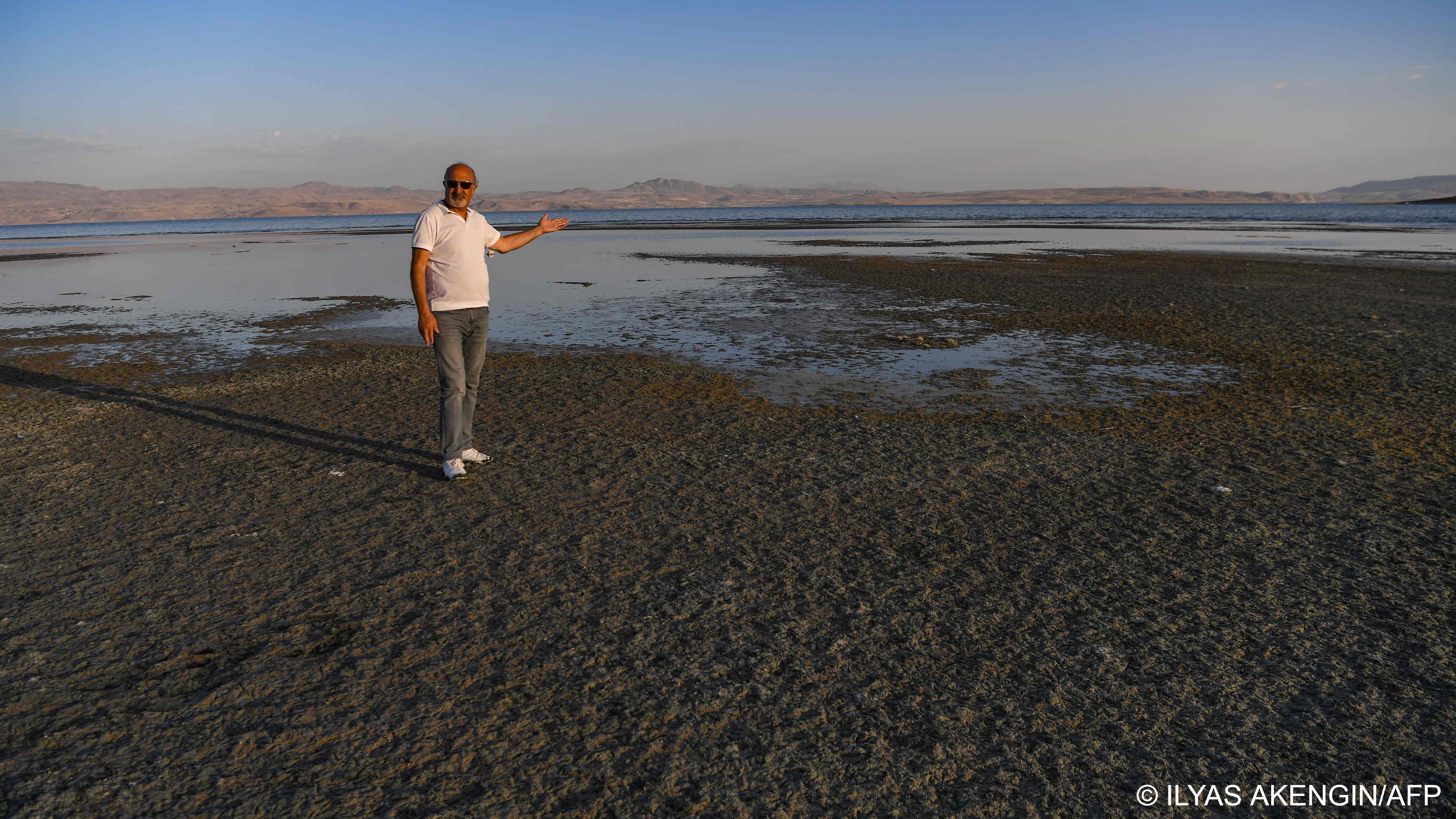
Shrinking shorelines: exposed lakebeds pollute the air with salty dust. Scientists fear the situation will only get worse. "I think these are our good days," said Faruk Alaeddinoglu, professor at Van Yuzuncu Yil University. "We will witness the lake continuing to shrink in the coming years" -
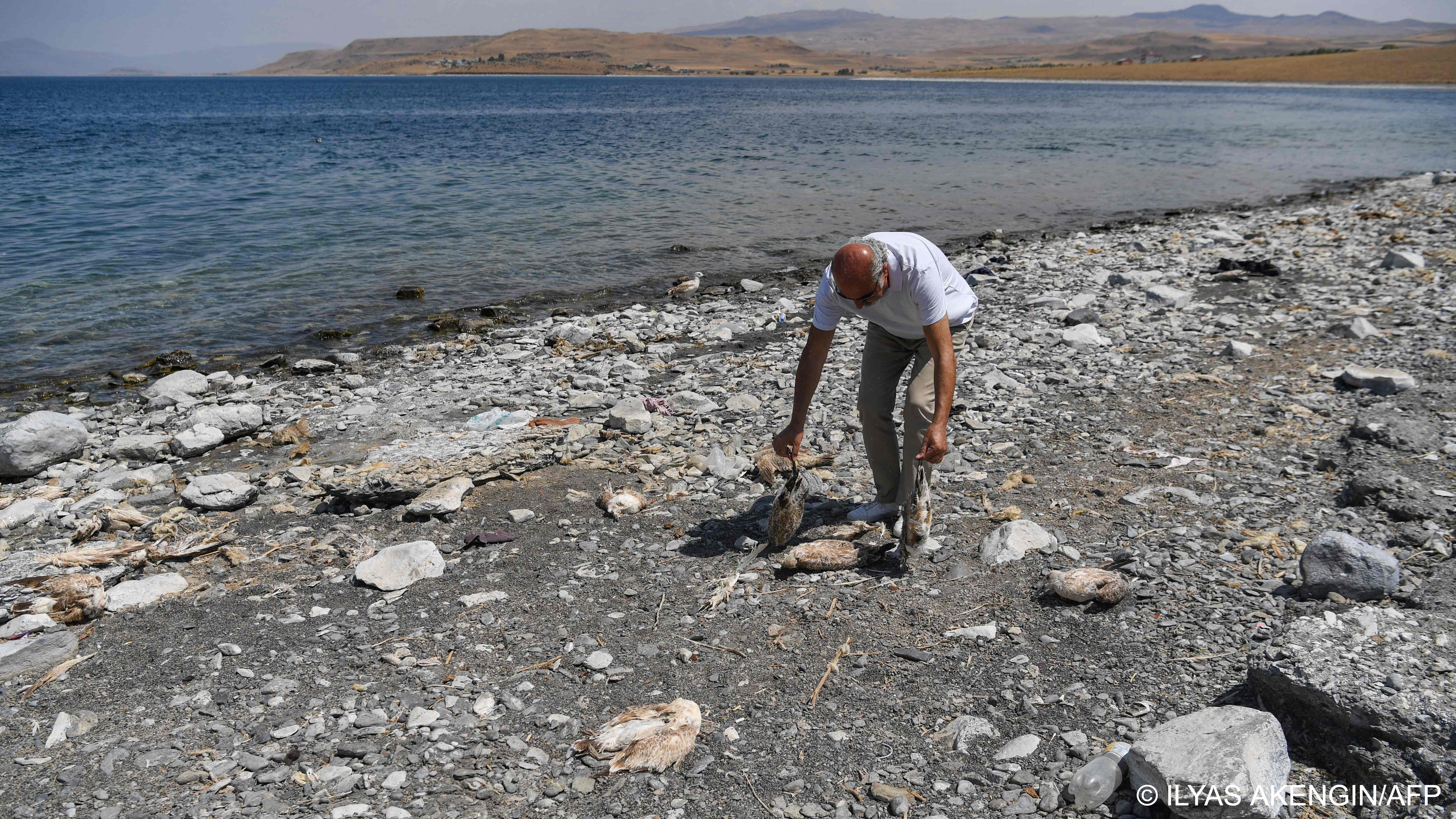
Turkey's largest lake: Lake Van covers approximately 3,700 square kilometres, reaching a maximum depth of 450 metres. Its surface area has shrunk by around 1.5 percent in recent years, according to measurements carried out last autumn -
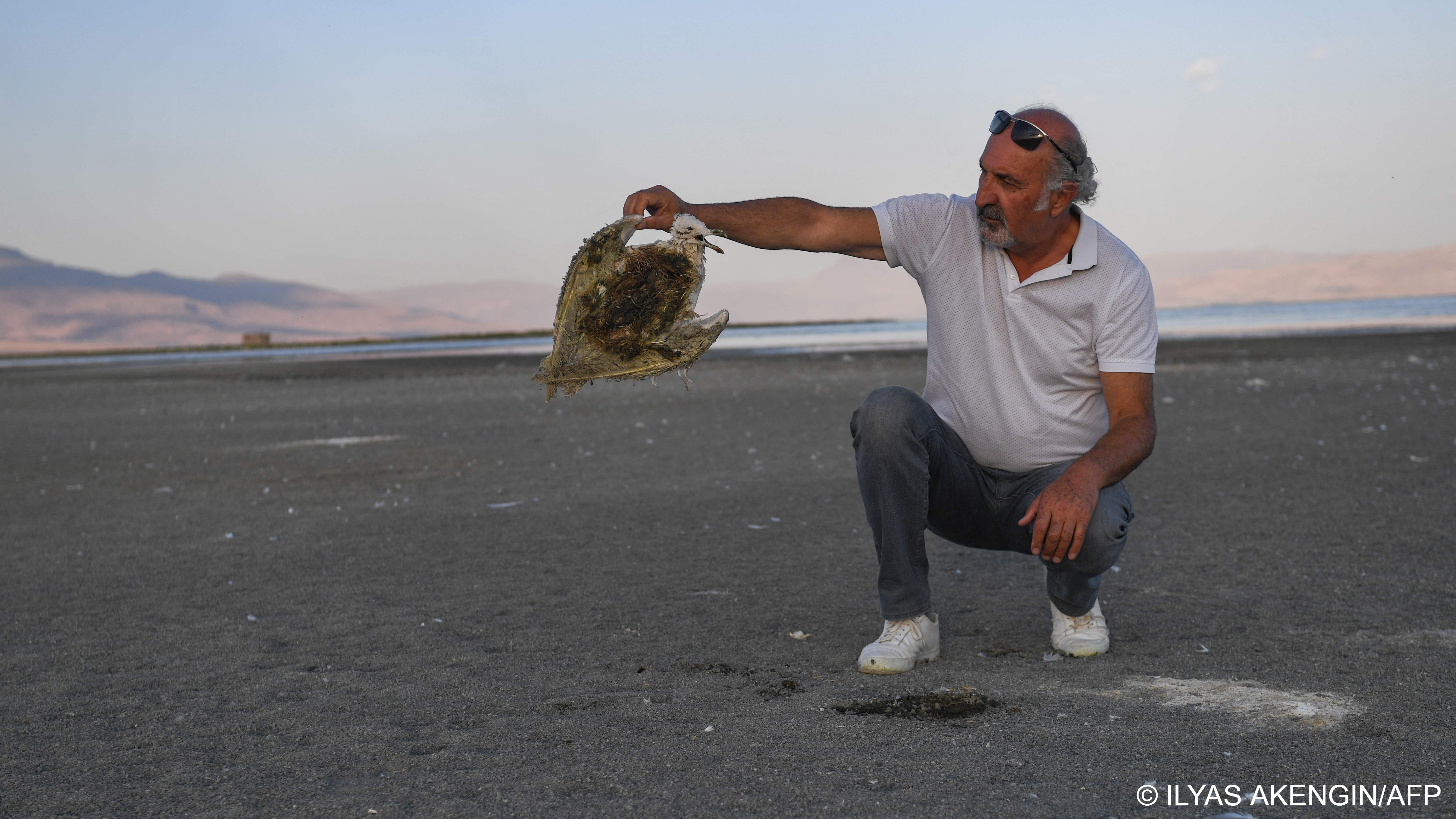
A loss of four kilometres: in Celebibagi on the lake's north shore, it's a long walk to the water's edge, across the exposed lakebed littered with bird bones, craggy bushes and dried dirt covered with sodium and other minerals. "We are walking in an area that was once covered with the lake's waters," said Ali Kalcik, a local environmentalist -
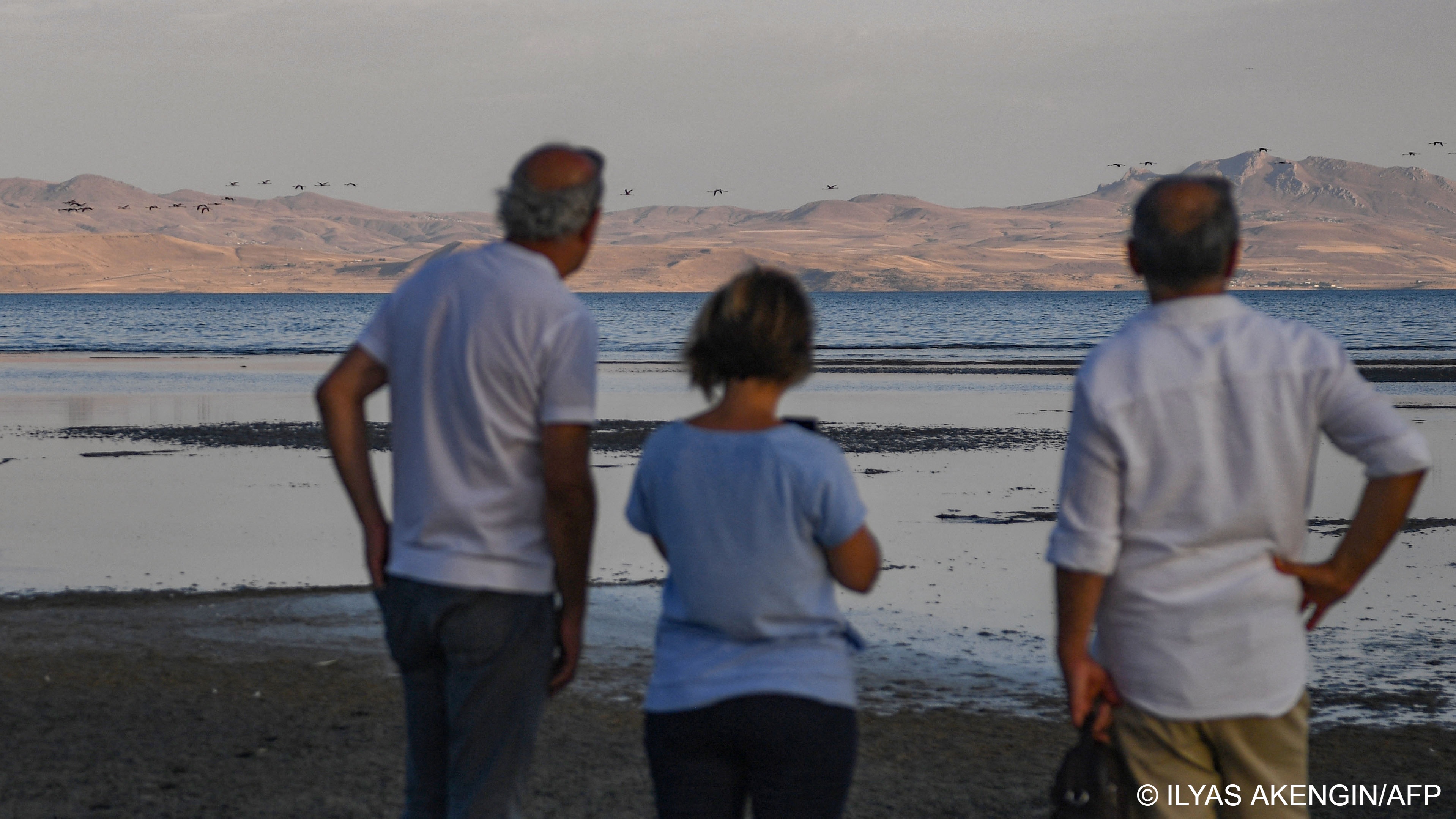
Changing climate: the lake's size has changed in the past because of rifts in tectonic plates, but Alaeddinoglu said he blamed the ongoing water loss on rising temperatures that result in "less precipitation and excessive evaporation". Almost three times as much of the lake's water evaporates than comes back down in the form of rain -
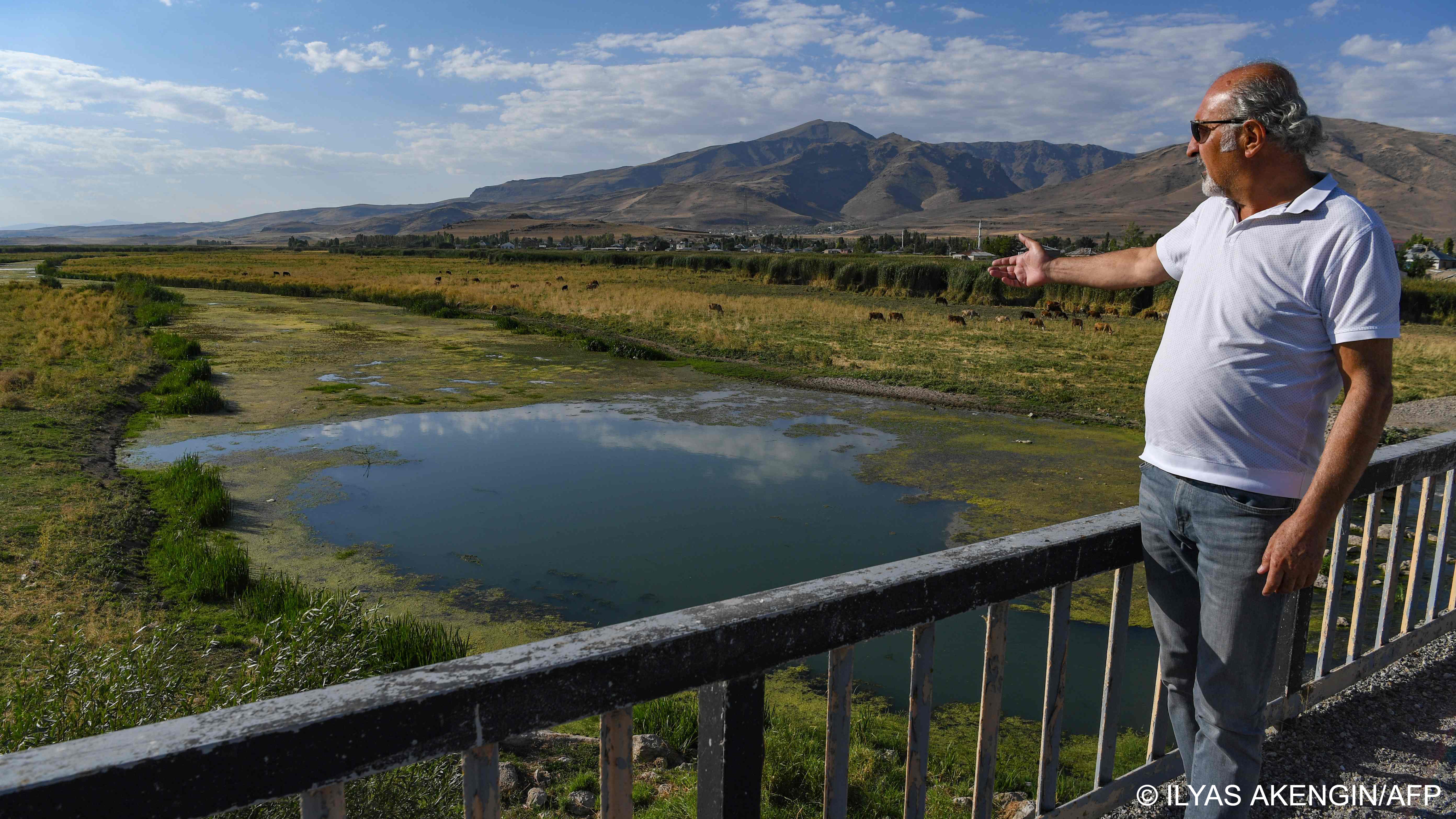
Tourism an added burden: lush gardens of newly-built summer cottages are also draining water from the region, where President Recep Tayyip Erdogan has built a government retreat. The problem has become so severe that officials are urging local farmers not to grow crops requiring too much water -
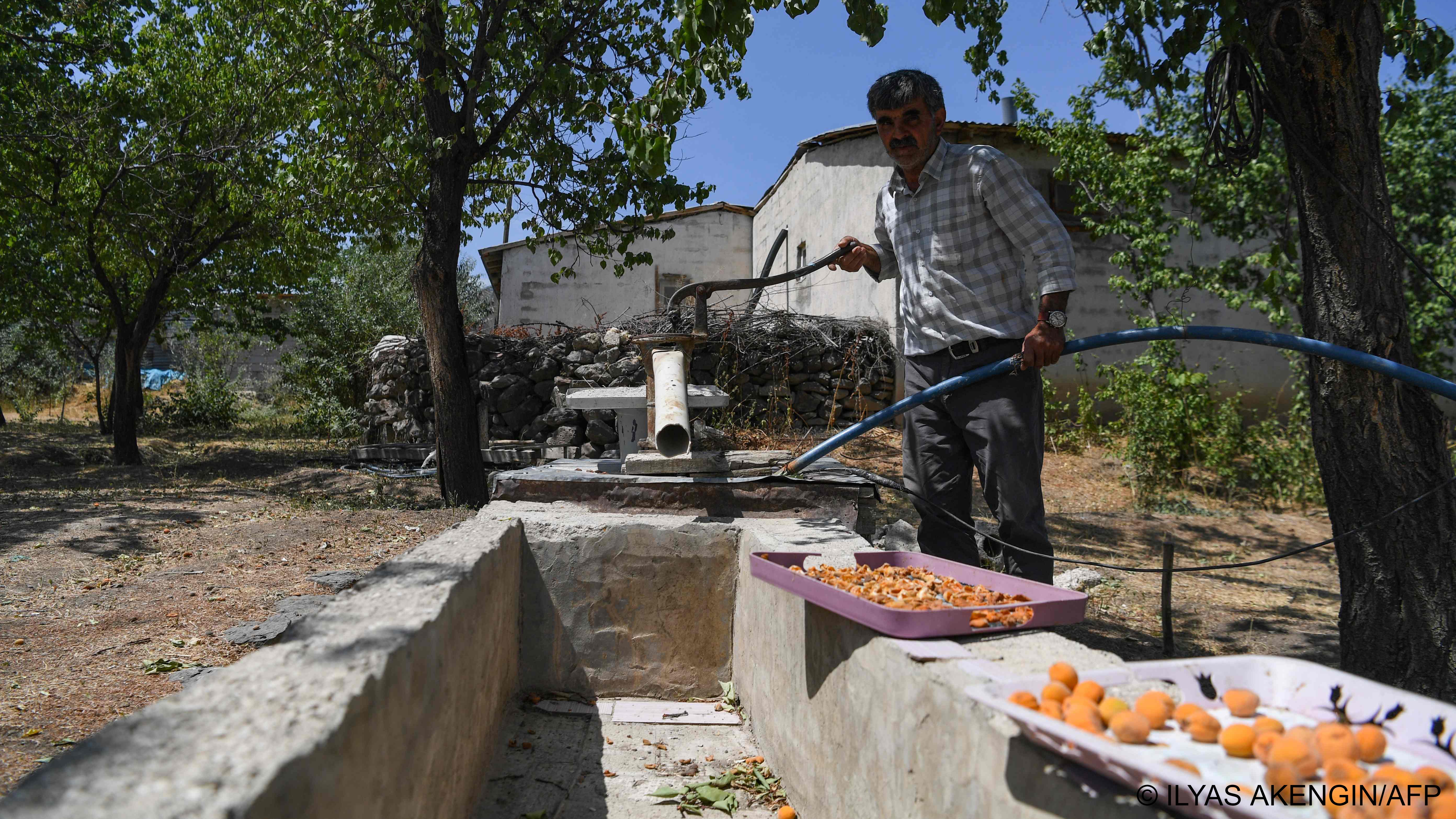
Directly impacted: farmer Kinyas Gezer can no longer afford to grow sugar beets, which are a particularly thirsty vegetable. "All my labour has been wasted," the 56-year-old lamented, pointing to his shrivelled apricots. "If it goes on like this, we will abandon farming. The business is dying" -
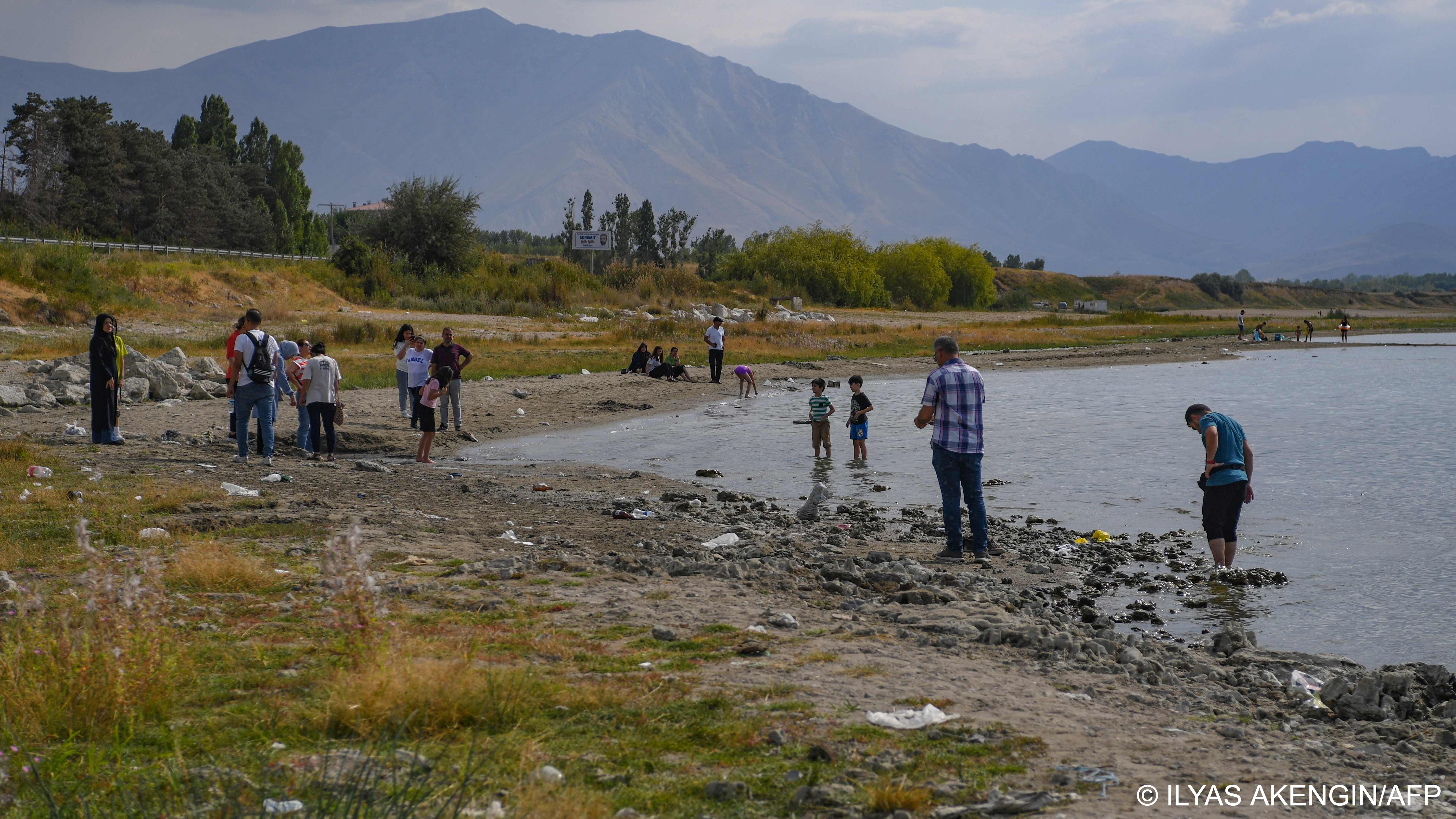
Too little, too late? Van Governor Ozan Balci said his office has spent 80 million lira ($3 million) cleaning up the lake. "We are doing our best to protect the lake because of its cultural heritage and people's common memory," he said -
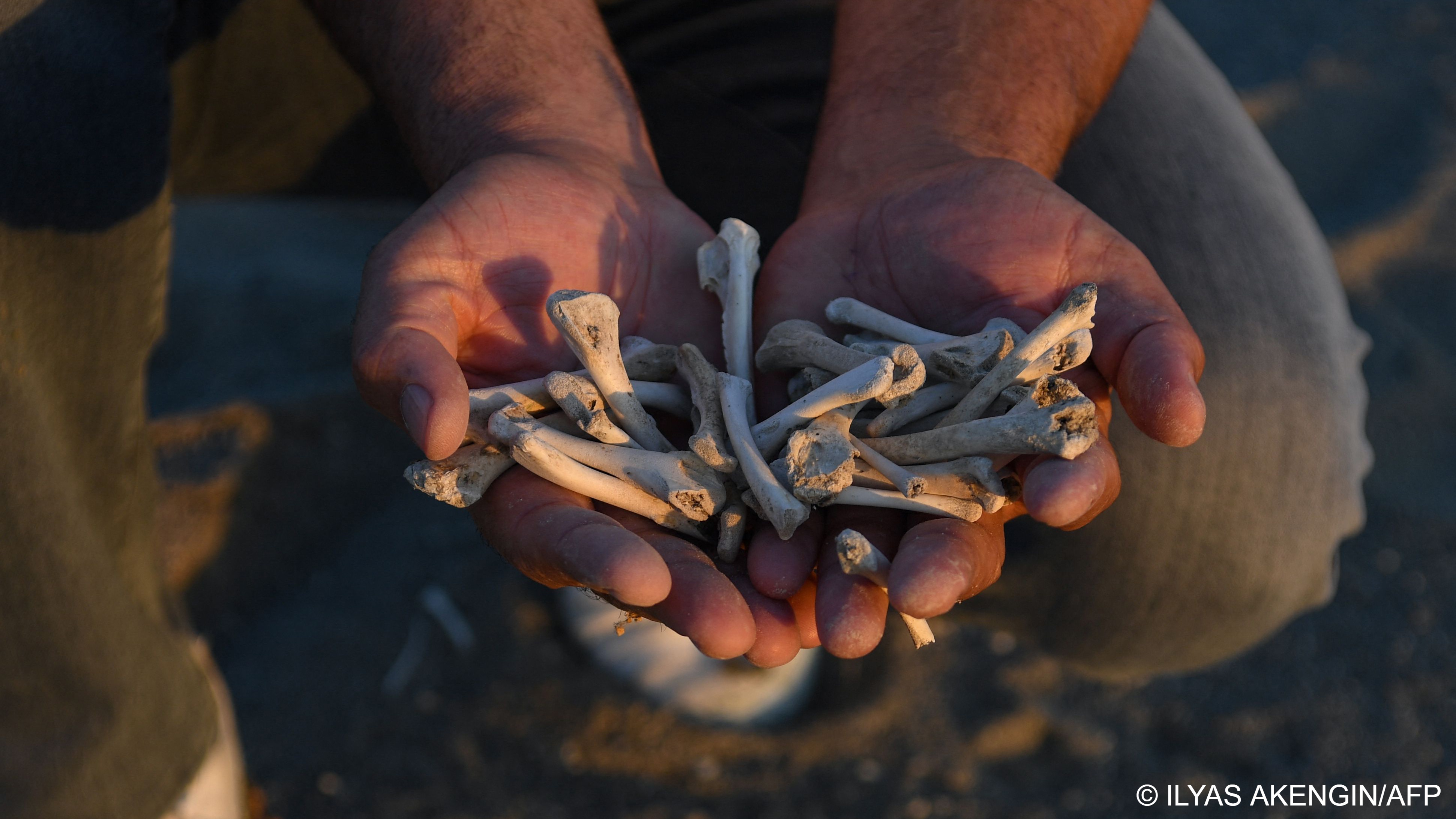
Drought forces pearl mullets to migrate early: deprived of food, the gulls simply starved to death. "The remaining birds here have one more week. Then they will also die," local villager Necmettin Nebioglu, 64, said. "It's a bird massacre"
https://qantara.stage.universum.com/en/node/42343
Link
To all image galleries